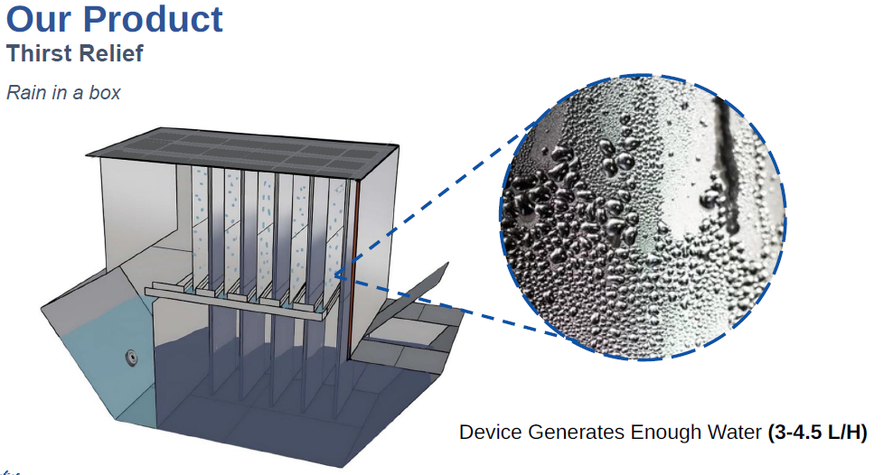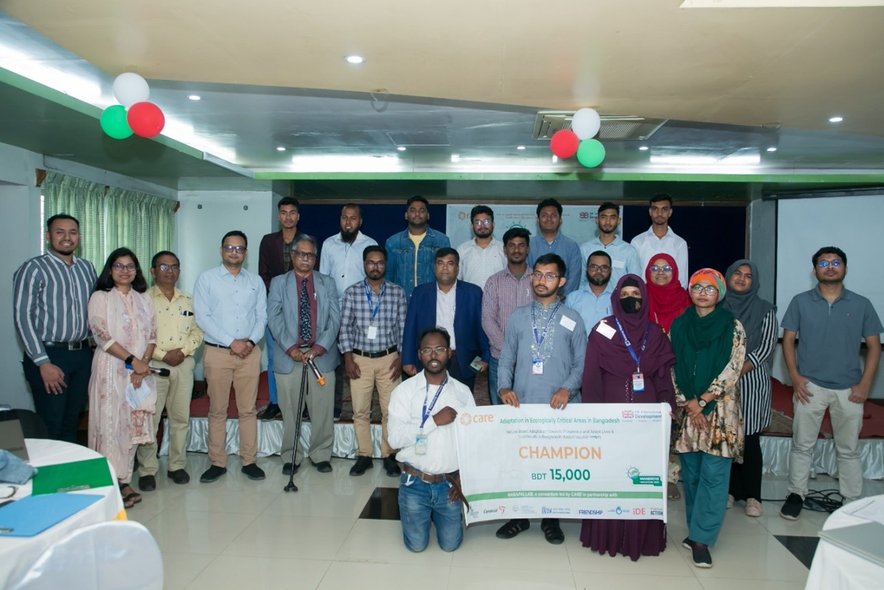In Bangladesh, climate change is rapidly increasing temperatures, sea levels, and extreme weather events. These shifts have serious consequences for coastal communities, which are increasingly vulnerable to flooding, cyclones, and saltwater intrusion. Yet, these same communities share their environment with one of nature’s most powerful allies in the battle against climate change: mangroves.
Mangroves are trees and shrubs which have uniquely adapted to thrive in harsh coastal conditions. Their ability to withstand salinity and flooding makes them a natural defence against the disruptive effects of climate change. Bangladesh is home to the Sundarbans -the world’s largest mangrove forest - which spans approximately 10,000 square kilometres in total across both Bangladesh and India.
Harnessing the power of the Sundarbans
The Foreign, Commonwealth and Development Office funded project: Adaptation in Ecologically Critical Areas in Bangladesh, locally known as the NABAPALLAB project, is a consortium of nine organisations, led by CARE, which works closely with communities in Bangladesh to tap into the protective power of the Sundarbans to deliver critical socio-ecological benefits. These include biodiversity conservation, shoreline stabilisation to prevent erosion, carbon removal and storage, and income generating enterprises for local communities.
Mangroves serve as a “nature-based solution” to climate change. They leverage the strengths of ecosystems to help communities manage climate-related hazards while also delivering mitigation outcomes.
They store ten times the amount of carbon as mature tropical forests annually, helping to reduce the amount of greenhouse gases in the atmosphere. In addition to their role in carbon storage, mangroves act as natural buffers against storms: in the wake of the 2004 tsunami, a study showed that the damage from the tsunami to areas buffered by coastal forests was strikingly less than in areas devoid of tree vegetation. They also support rich biodiversity and provide food and income-generating opportunities for local populations.
Youth innovation for climate resilience
NABAPALLAB partners, including the Centre for Climate Change and Environmental Research (C3ER), in collaboration with OAB Foundation, Sharub Youth Team, Renew Earth and FFCRJ recently hosted a “Mangrove Hackathon,” bringing together more than 150 young people from Bangladesh to develop innovative, nature-based solutions to climate challenges. After a competitive selection process, ten finalists presented their ideas. Four standout teams - Bio-Sol, Thirst-Relief: Rain in a Box, Solar Fish Dryer, and Suborno - each received BDT 15,000 in recognition of their ground-breaking contributions.

Thirst Relief: Rain in a Box tackled the critical issue of water salinity, which affects millions of people in coastal Bangladesh. As seawater increasingly intrudes into freshwater sources due to rising sea levels and temperatures, around 43 million people face limited access to safe drinking water. The team’s solution is a solar-powered water distillation system housed in an affordable, easy-to-assemble box that transforms rainwater into safe drinking water.
Bio-Sol focused on combatting plastic pollution by developing an eco-friendly alternative for single-use items. Their innovation involves producing biodegradable plates and bottles using agricultural waste materials such as straw, wood powder, and sugarcane bagasse. These products naturally decompose in the soil and even contribute to plant growth, offering a sustainable alternative to plastic.

The Mangrove Hackathon demonstrates the power of youth-led innovation in addressing climate challenges. From clean water solutions to plastic alternatives, these young changemakers are not only imagining a more sustainable future—they're building it. Through NABAPALLAB, CARE and our partners will support them to make this a reality.
The importance of climate action: from local to global
The scale of the climate crisis requires action at all levels, from local to global. CARE will be pushing governments at COP30 in Brazil this November to ensure they meet their commitments on nature and climate finance, and support gender-just climate action in global south countries like Bangladesh who are on the frontline of the climate crisis.



